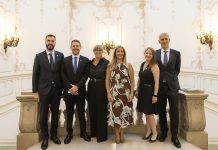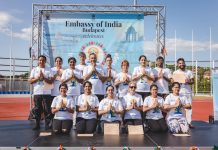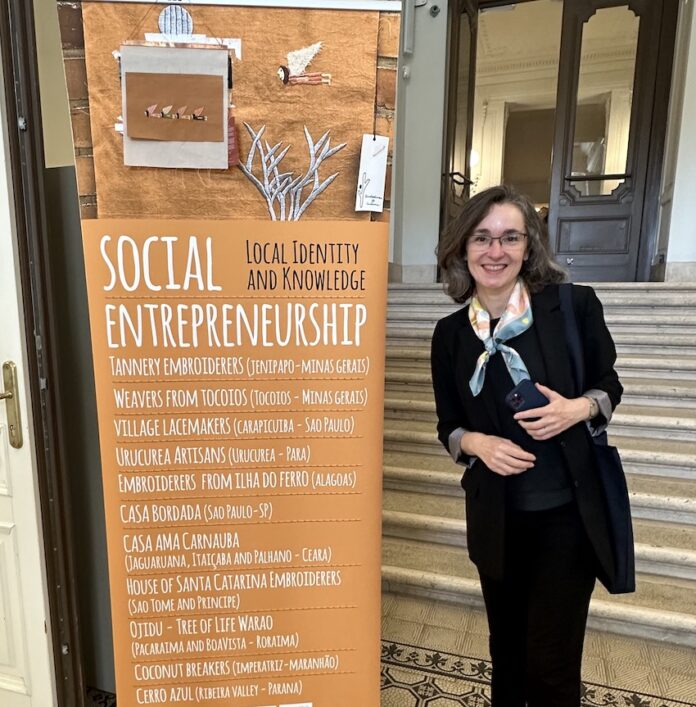Social Entrepreneurship: Local Identity and Knowledge
Edited by Anna Popper
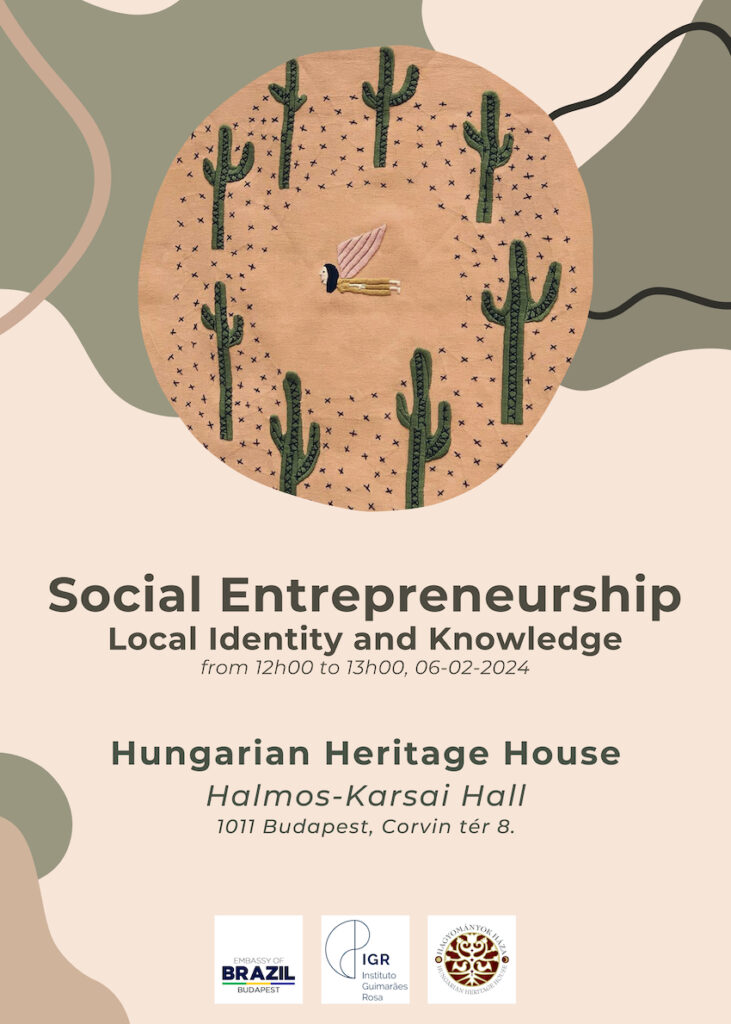
Organised in cooperation by the Embassy of Brazil and the Hungarian Heritage House, a traveling exhibition entitled “Social Entrepreneurship: Local Identity and Knowledge” was opened on 6 February 2024, showcasing twelve social projects that focus on women’s empowerment, handicrafts, folk art, sustainable development, and environmental protection.
Brazil, the world’s fifth largest country by area and the seventh most populous, plays a significant role in addressing social tensions and promoting the advancement of marginalized groups through various welfare initiatives. This exhibition is a testament to cultural-driven economic progress and demonstrates a profound commitment to social responsibility.
The inaugural event, held in the Halmos–Karsai Hall of the Hungarian Heritage House, attracted great interest. In addition to a sizable number of Hungarian participants, it was also graced by many members of the diplomatic corps and friends of Brazil.
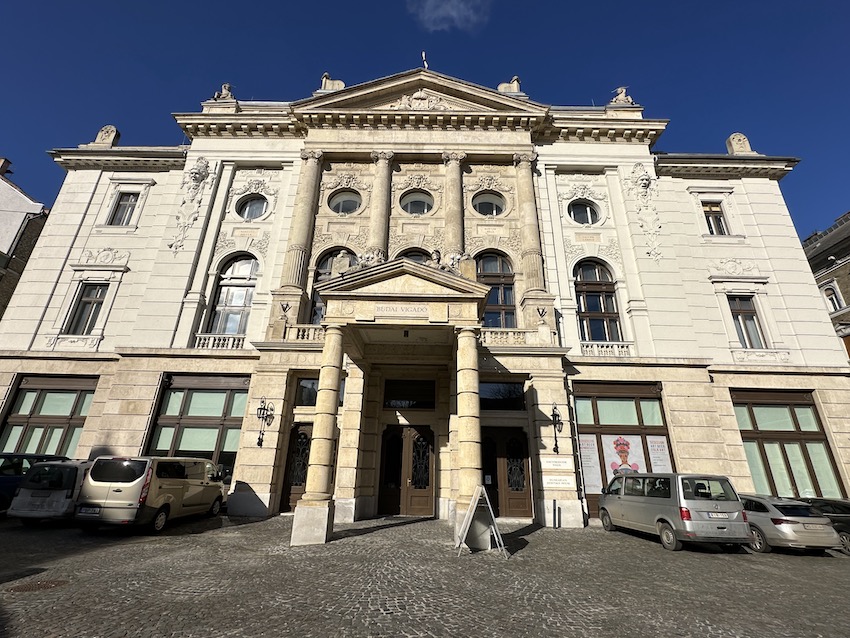

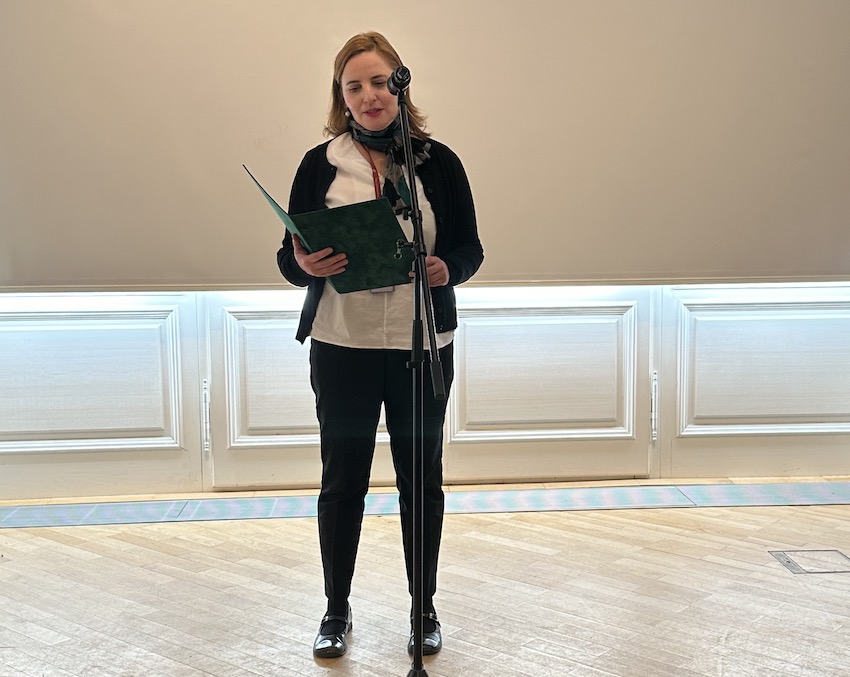
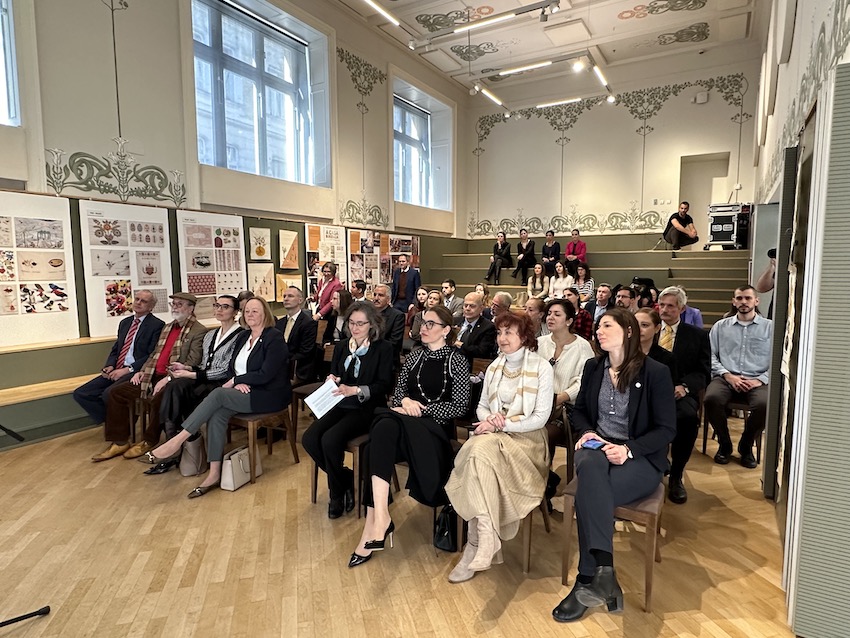
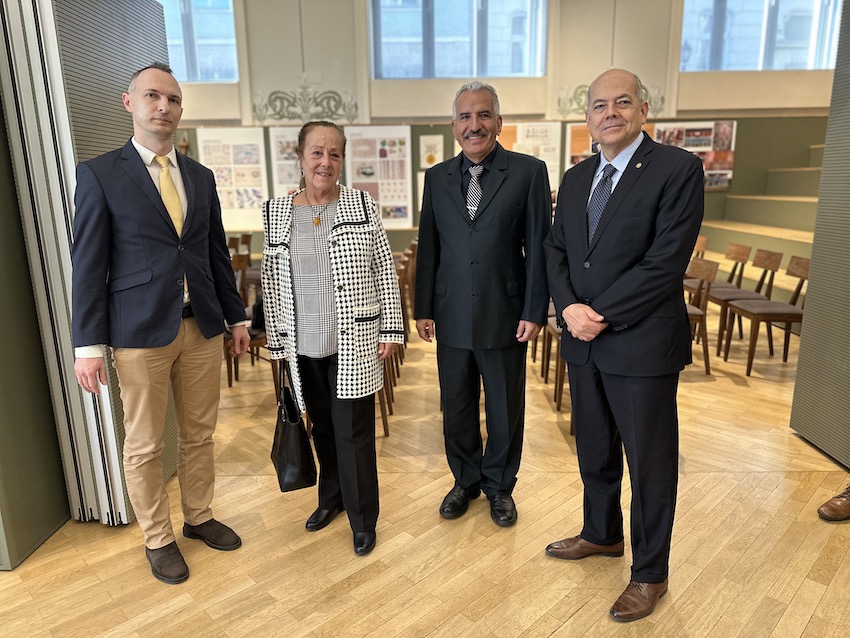
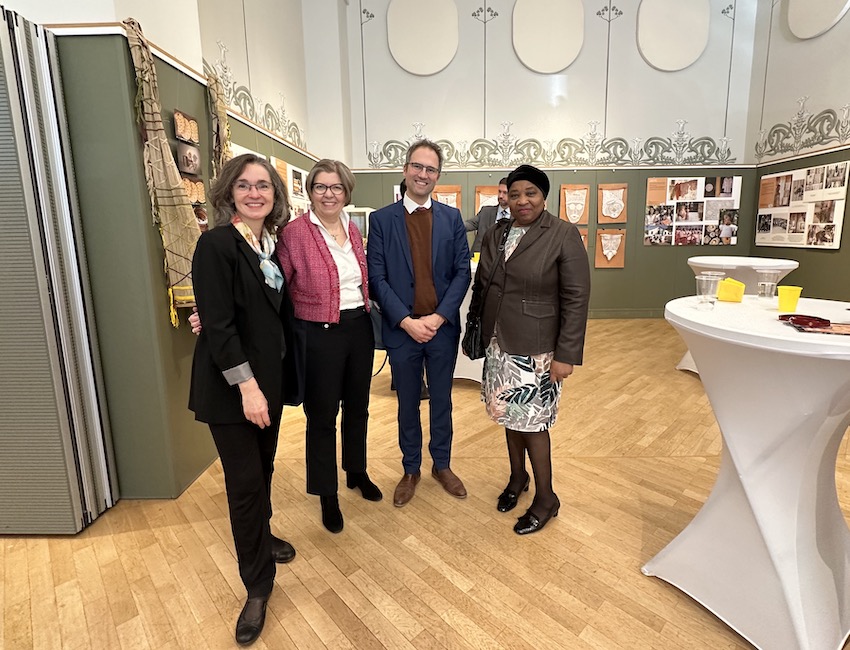
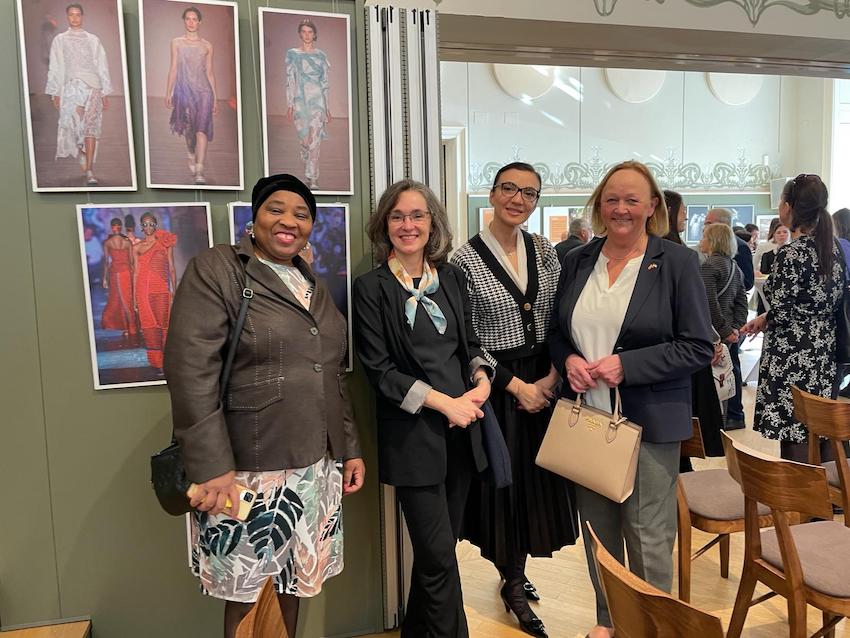
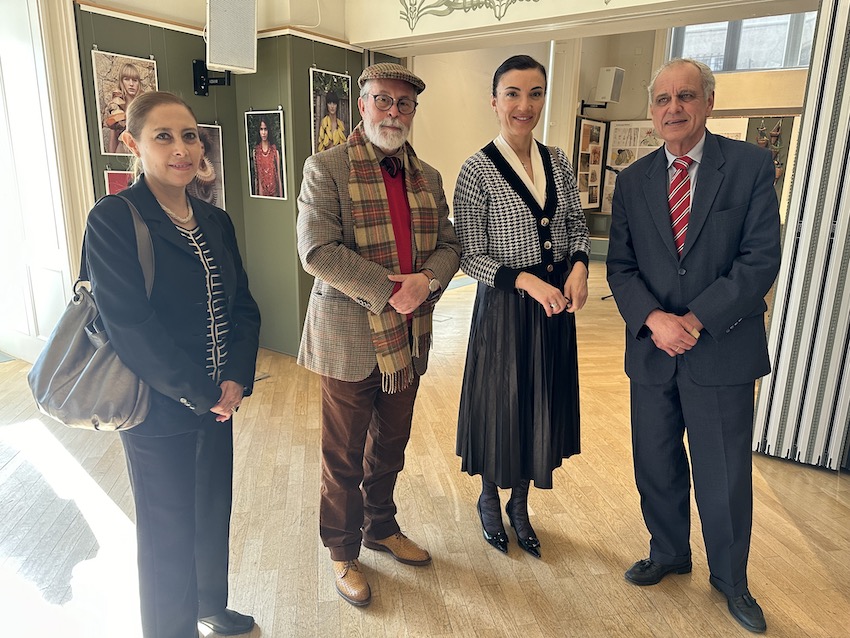
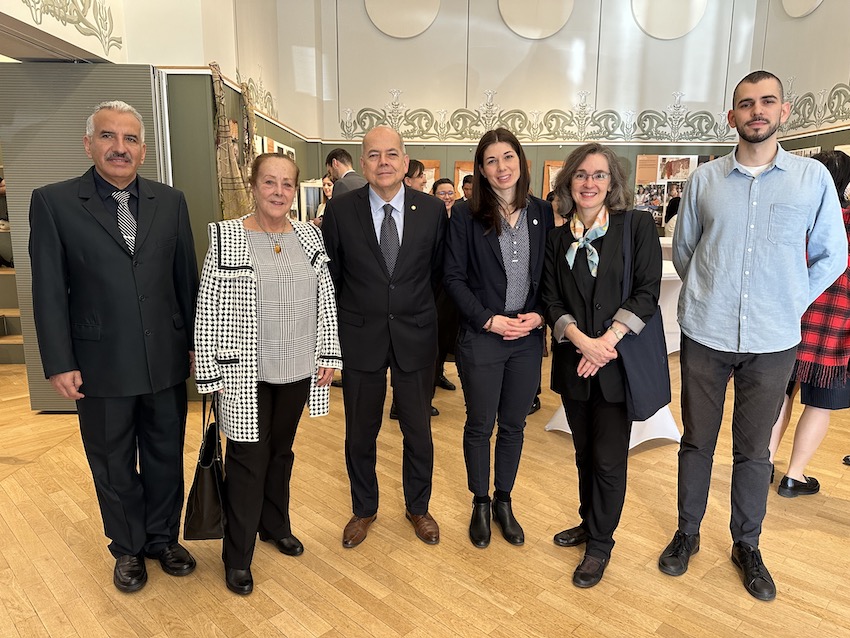
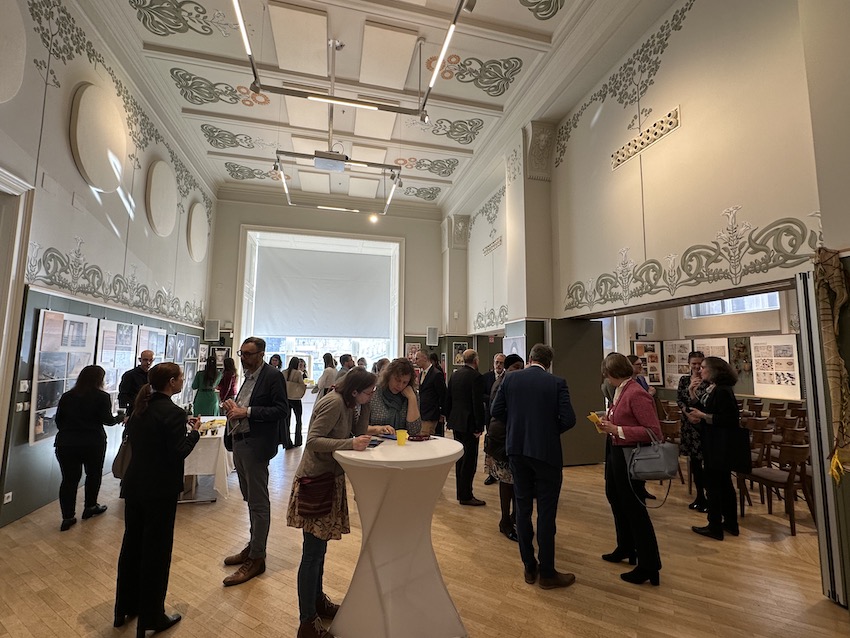
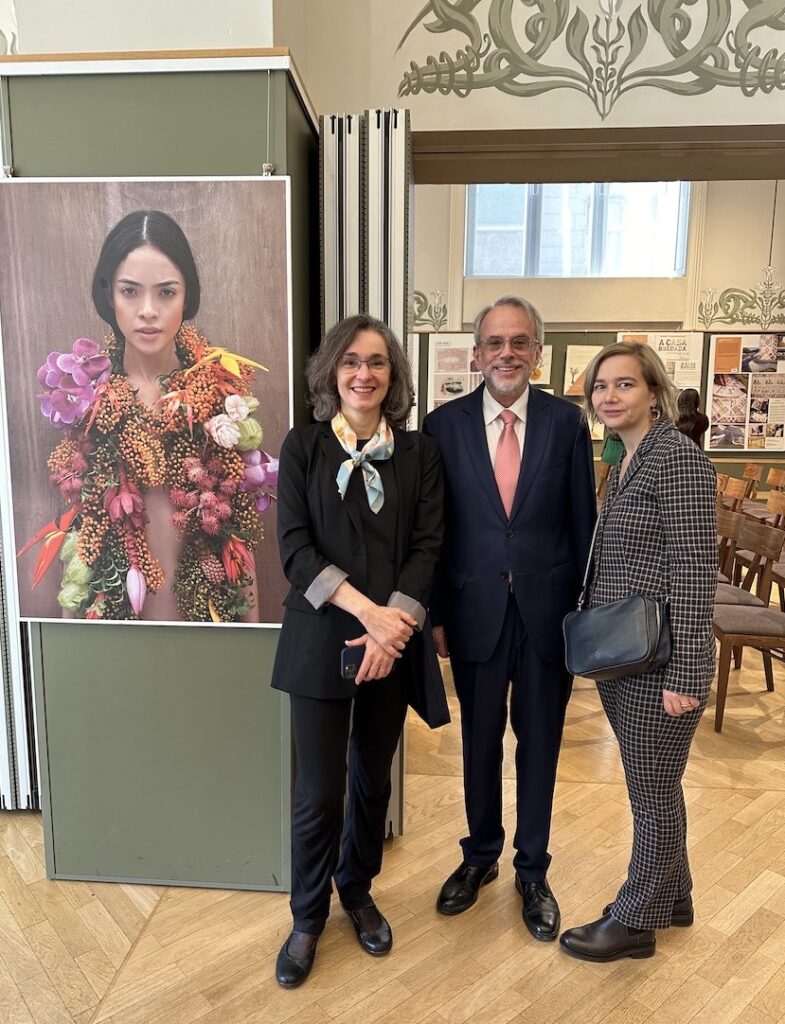
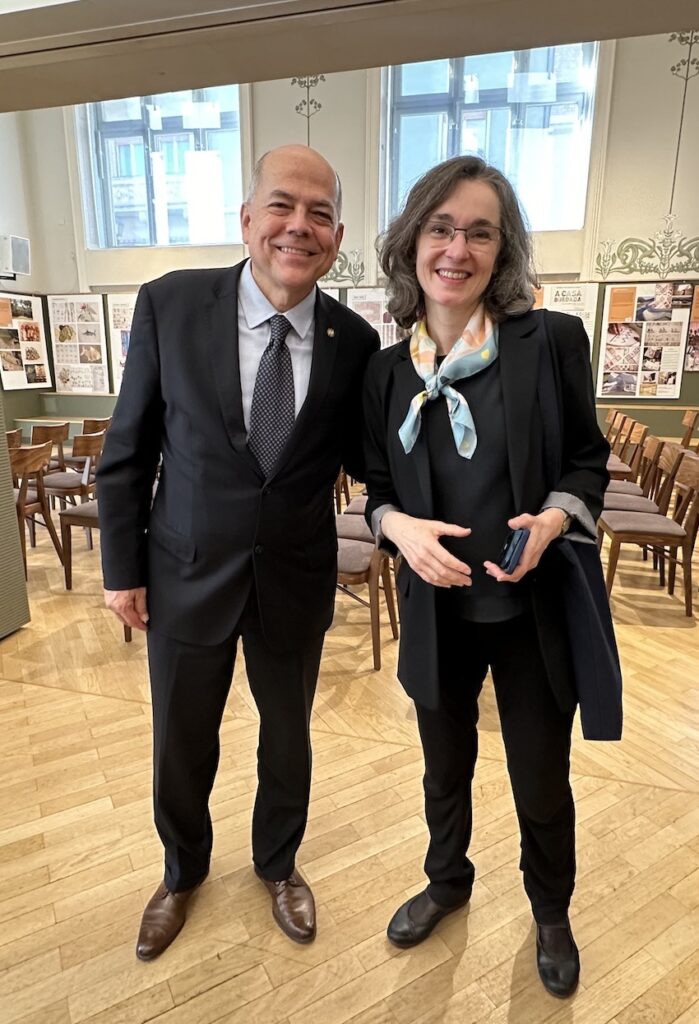
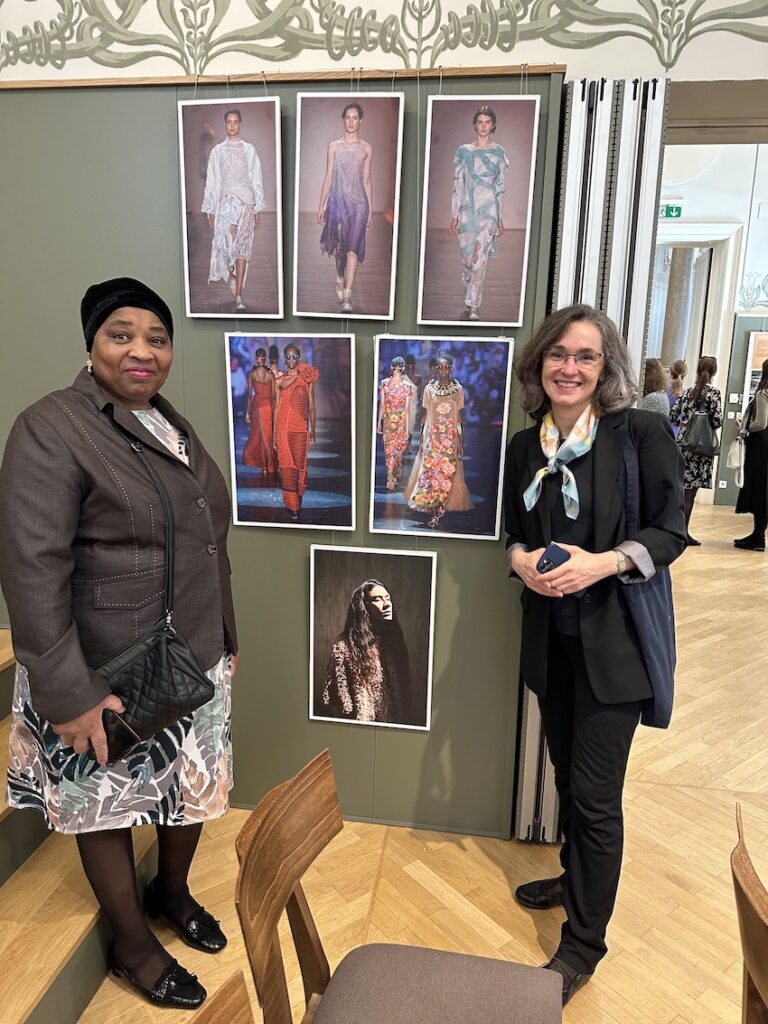
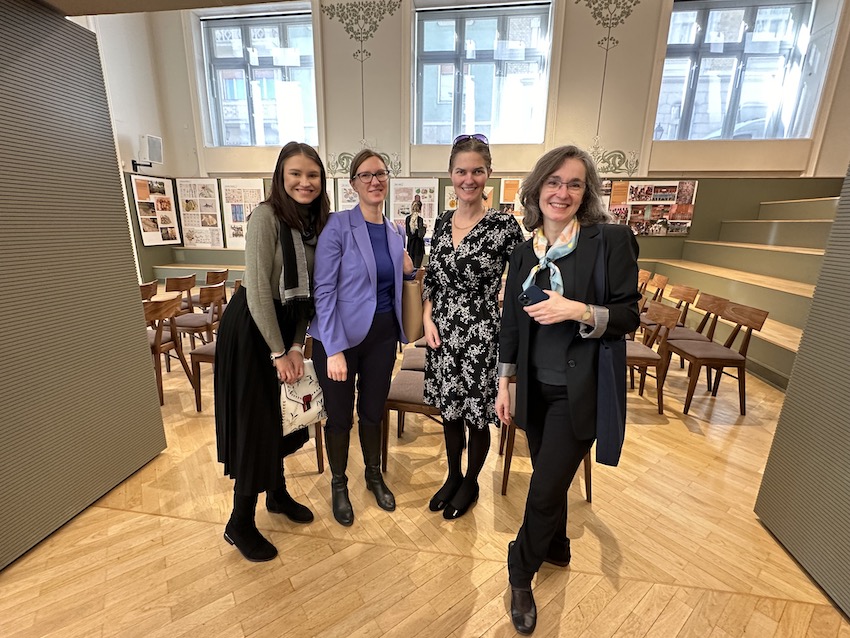

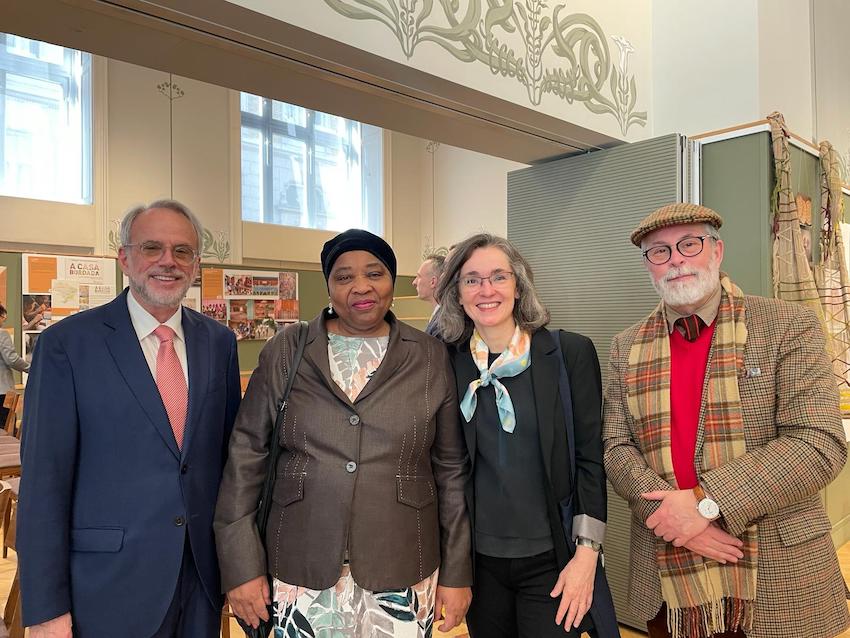
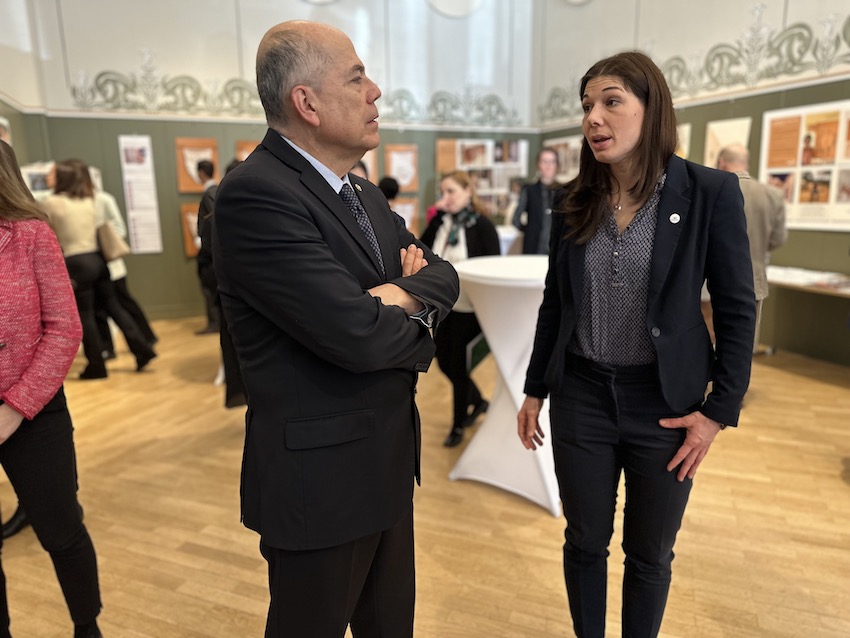
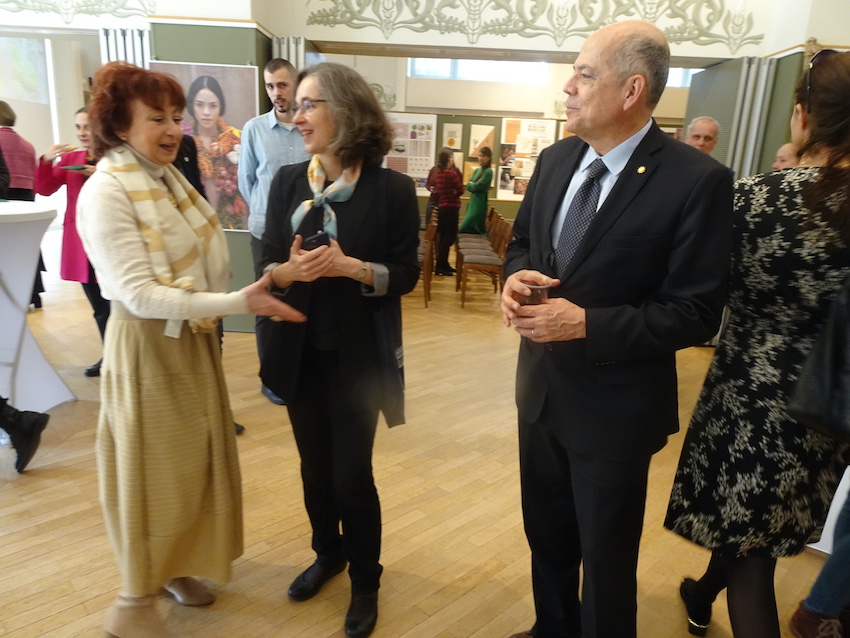
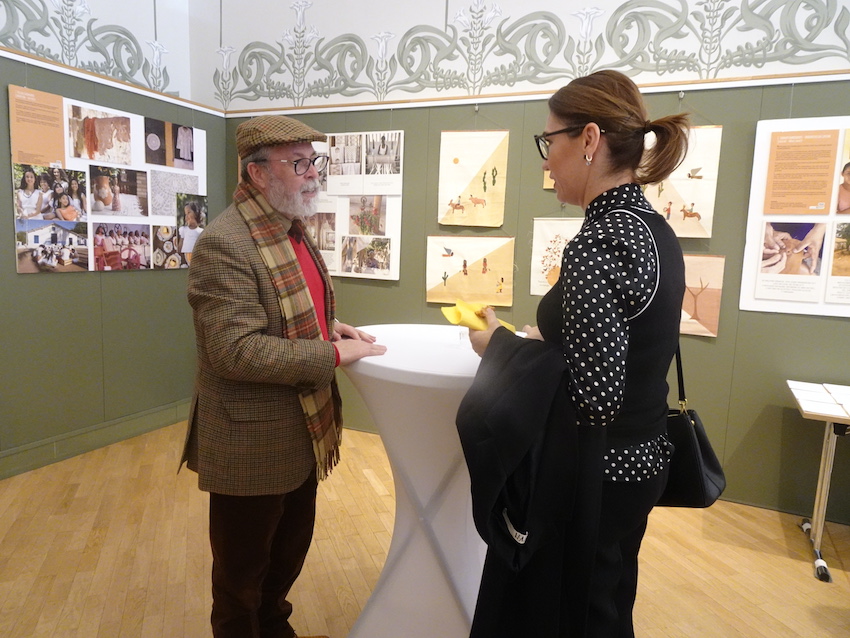
In her opening address, H.E. Susan Kleebank, Ambassador of Brazil to Hungary welcomed the audience and introduced the concept of the exhibition:
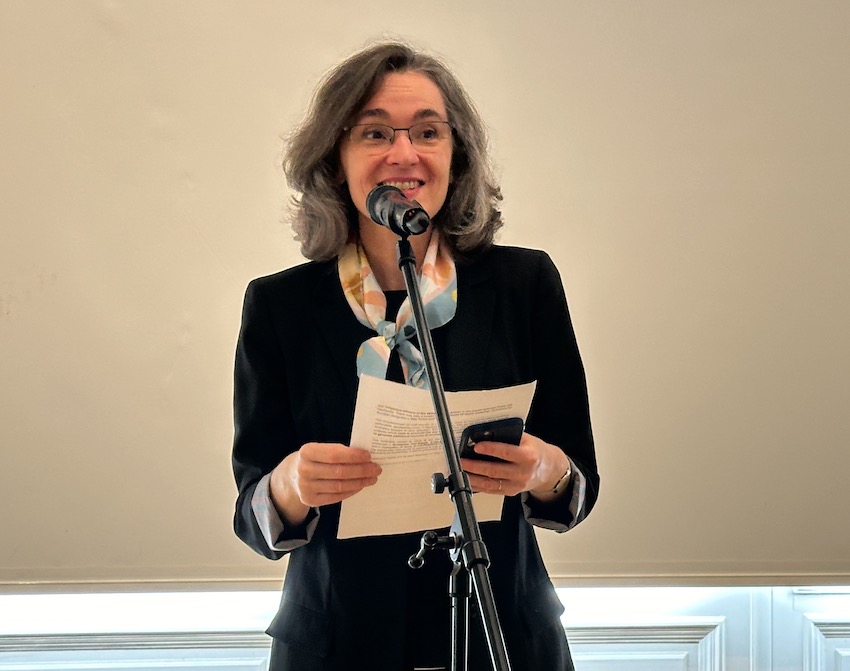
“I am honoured that the House of Hungarian Heritage offers the opportunity to present the exhibition “Social Entrepreneurship: Local Identity and Knowledge” at this prestigious venue.
The main subject of this exhibition is a common reality in many countries, and it associates tradition and sustainable development in rural areas. In the time between harvest and other agricultural routines, most local women seek work in parallel activities to supplement their income and enhance the self-esteem of women involved in the work. And this topic, I wish to bring to your attention, sharing with you one development in particular.
In Brazil, there has been a growing number of social and developmental projects, aimed at supporting rural women in the production of high-quality handicrafts, incorporating social and environmental sustainability concerns. These projects promote the use of local resources and, above all, the appreciation of local customs and traditions. This development is a good example of social entrepreneurship.
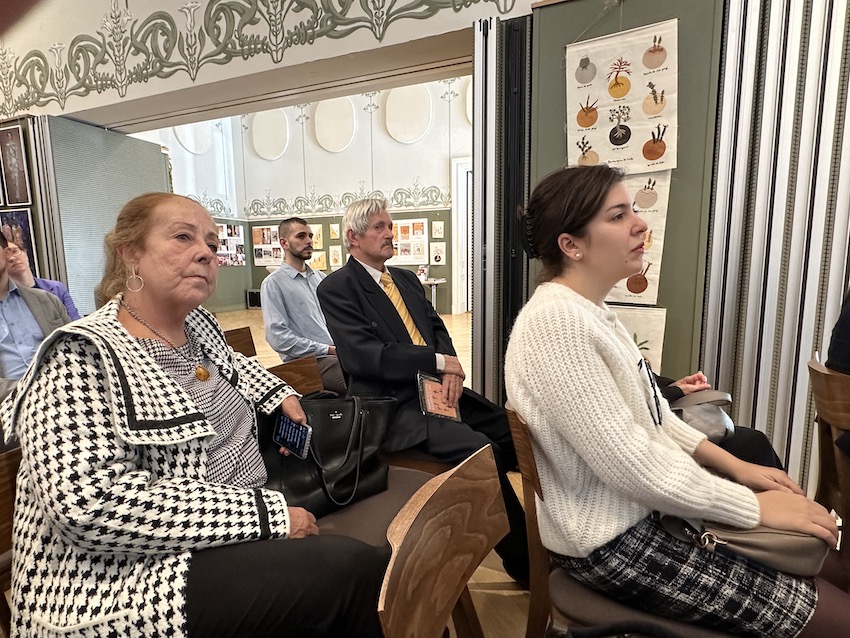
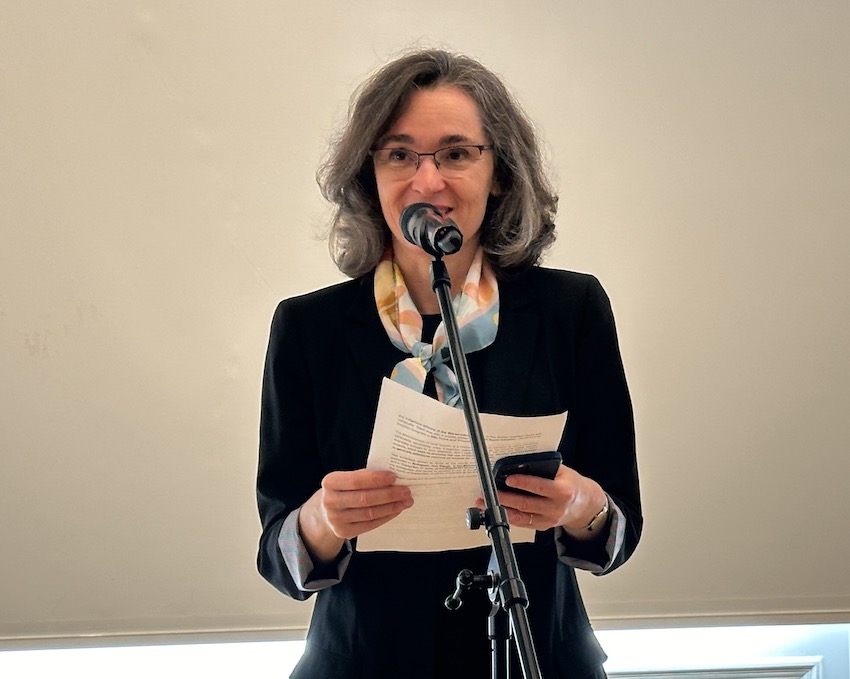
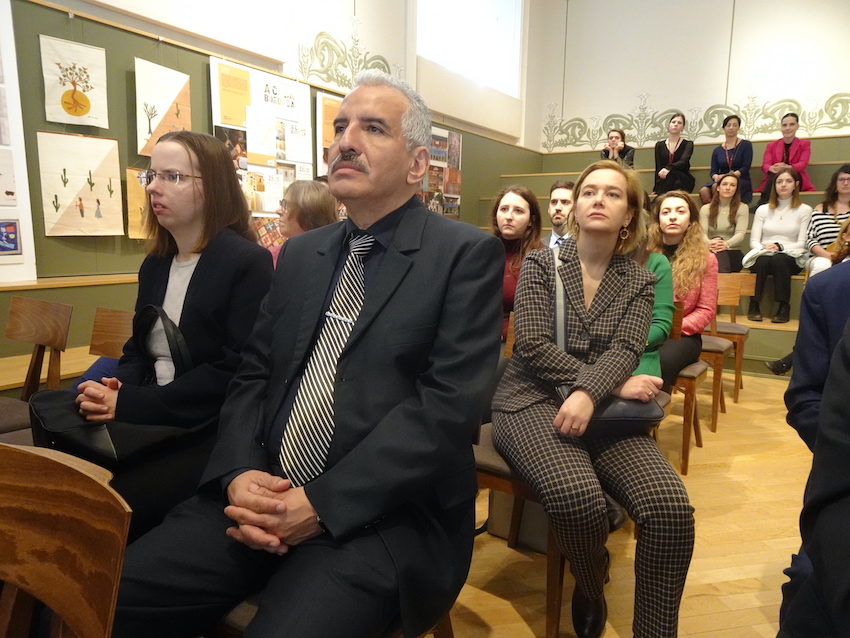
In 2019, I organised an exhibition on this topic entitled Social Entrepreneurship: Local Identity and Knowledge at the Consulate General of Brazil in Geneva, Switzerland. It showed images and explanations of three specific projects in rural areas of Brazil: the Tannery Embroiders from a very dry and poor agricultural area, the hinterland of Jenipapo in the State of Minas Gerais, the Weavers of Tocoiós in the same arid region, and the Village Lacemakers, women from rural areas near São Paulo.
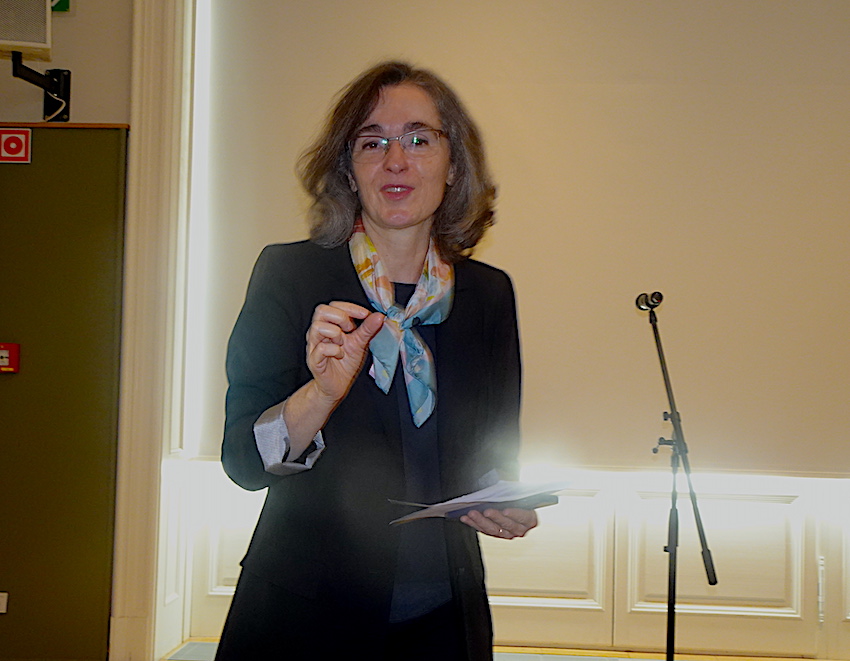
Upon hearing about this exhibition, several other social and art institutions contacted the Consulate and presented similar projects. This led to a new edition of the exhibition, now with 12 projects, which took place at the Headquarters of the World Intellectual Property Organization in Geneva, in February 2020. Among the new projects, I would like to highlight the use of indigenous traditions in design, objects crafted by artisans from Urucureá, in the State of Pará in the Amazon rainforest, and indigenous artisans of the Warao ethnic group on the border between Brazil and Venezuela. There was also a project called “House of Santa Caterina”, developed by Brazilian designers in São Tomé and Principe.
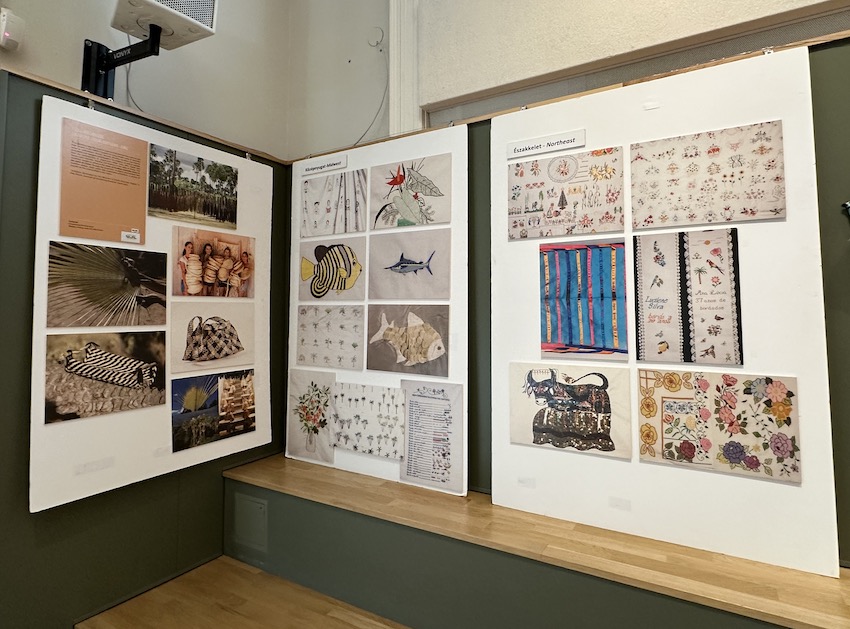
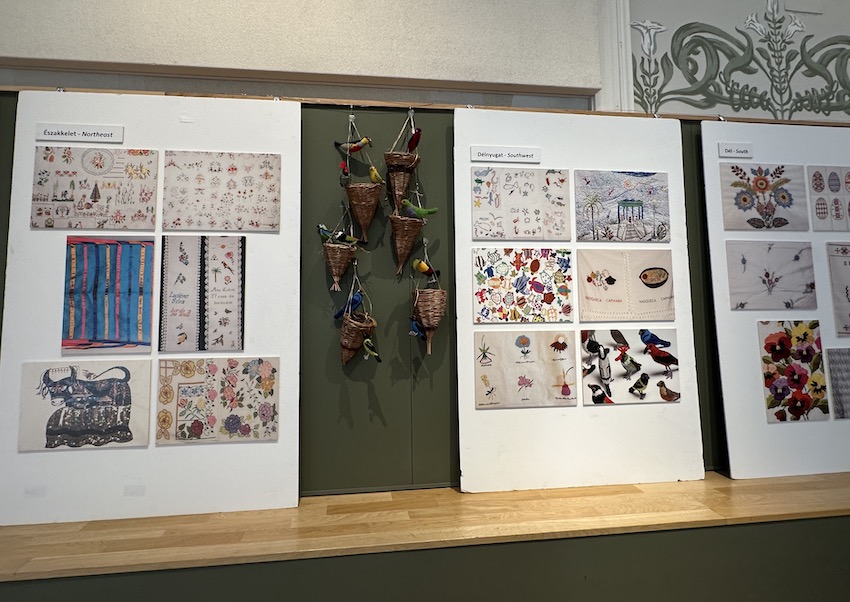
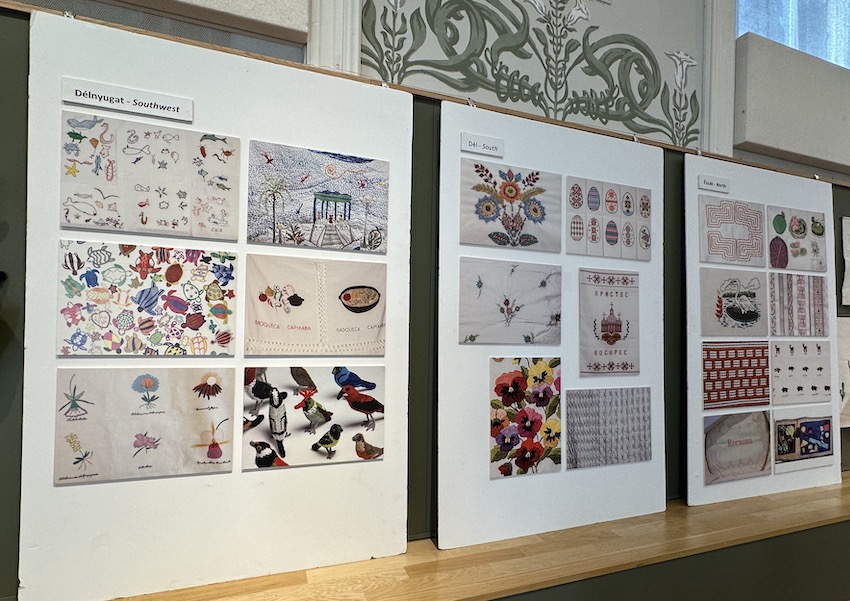
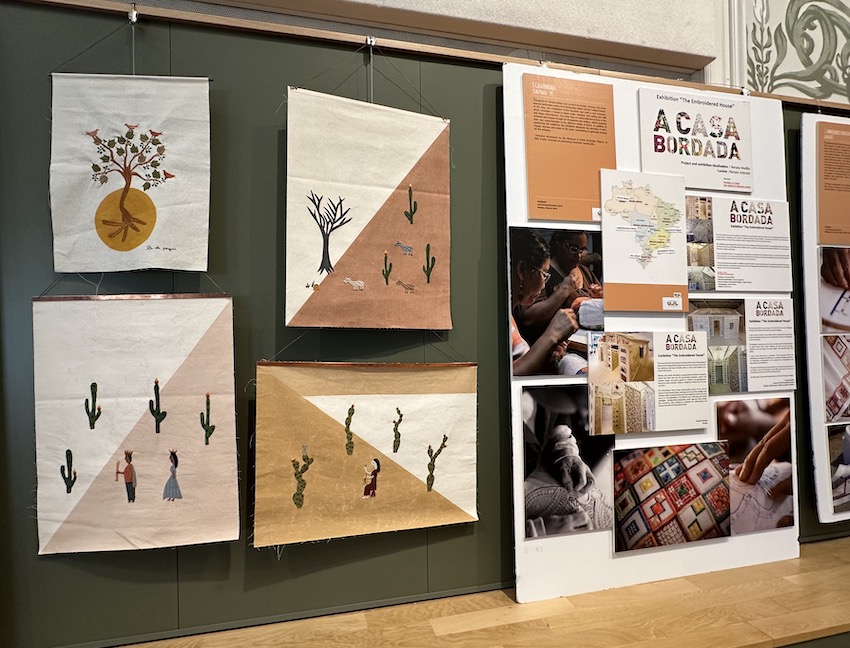
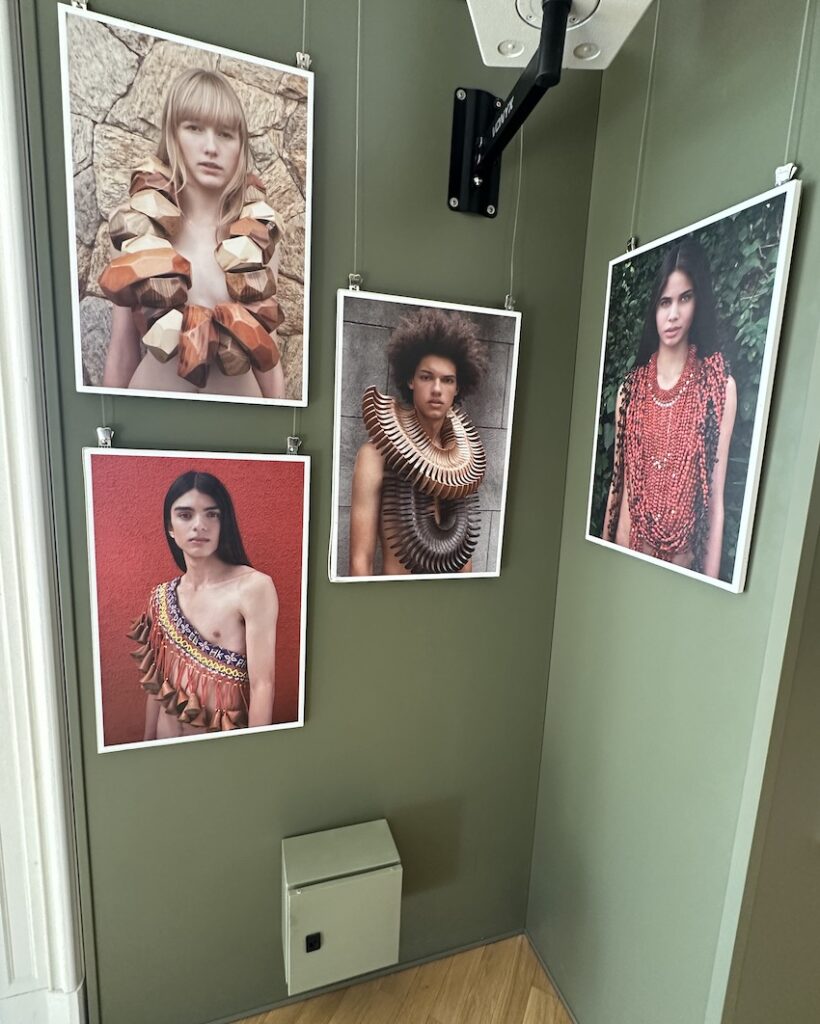
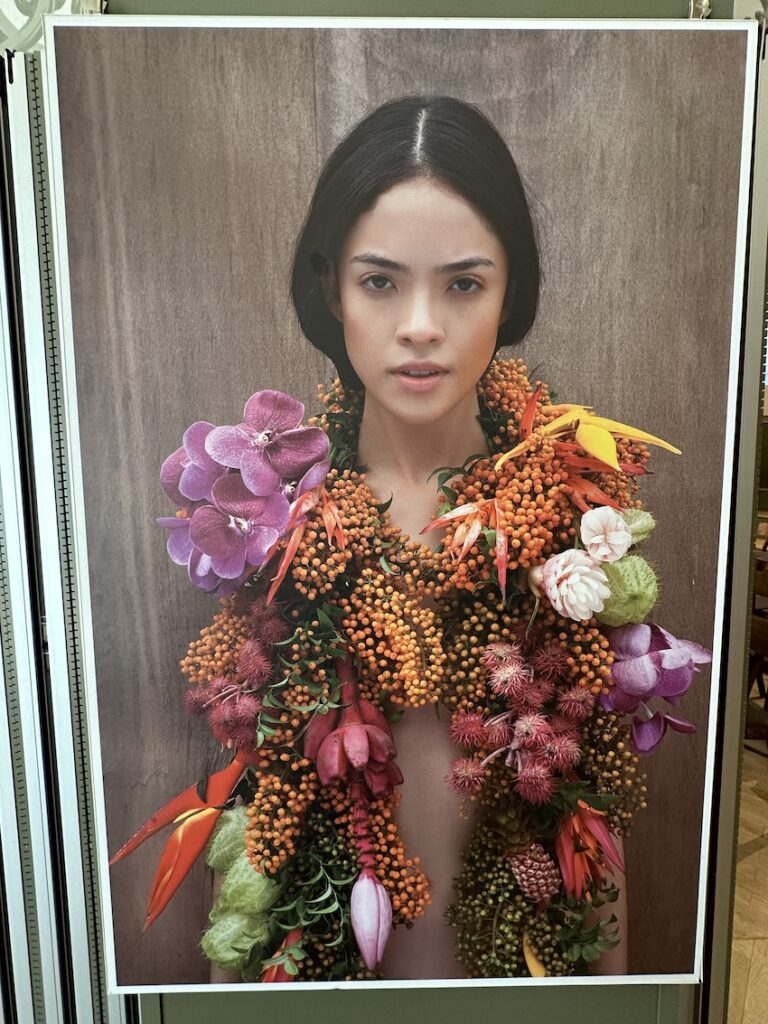
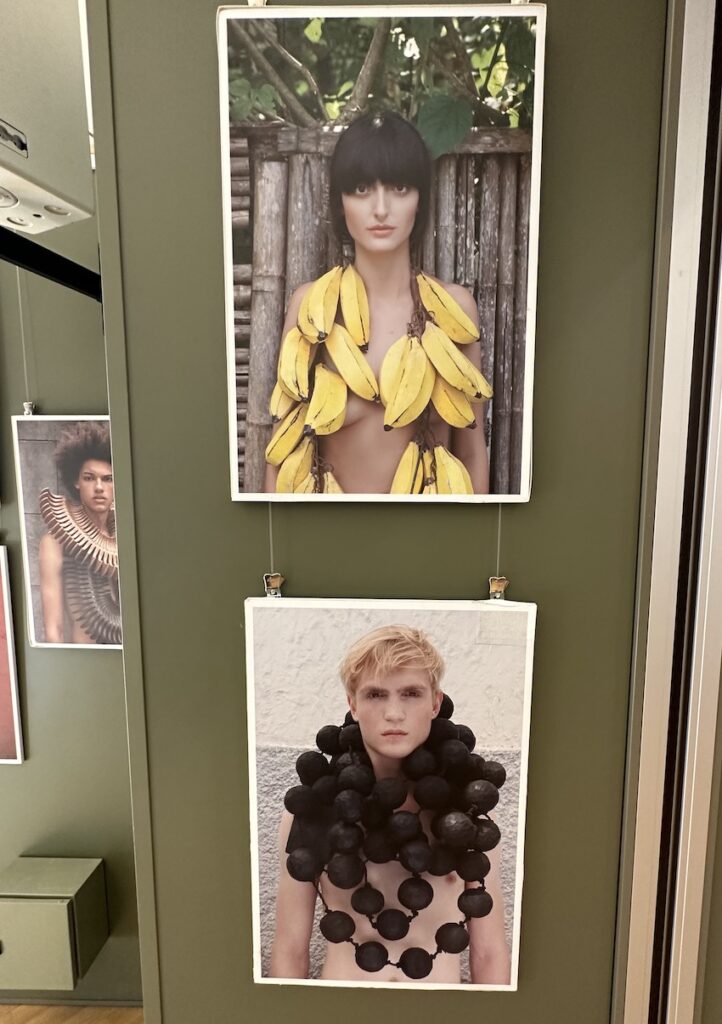
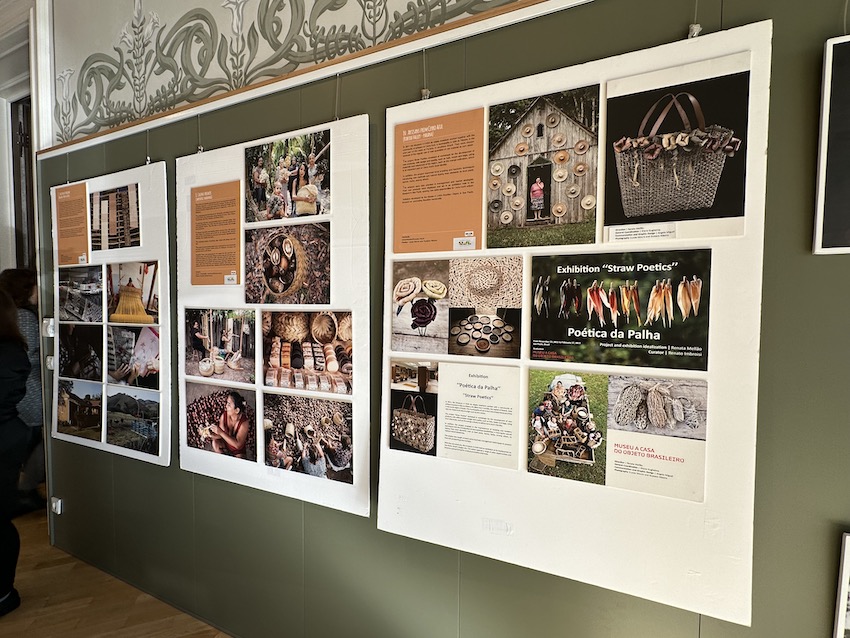
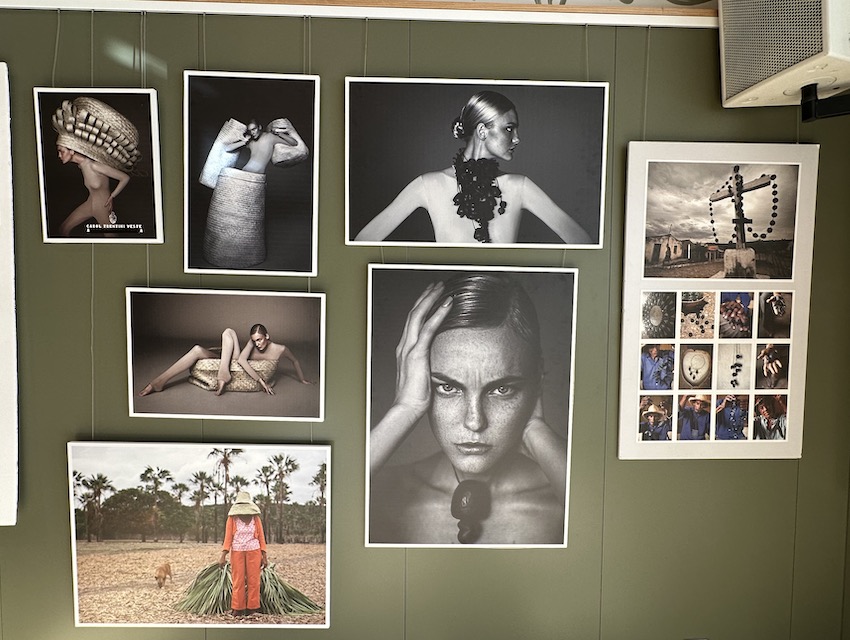
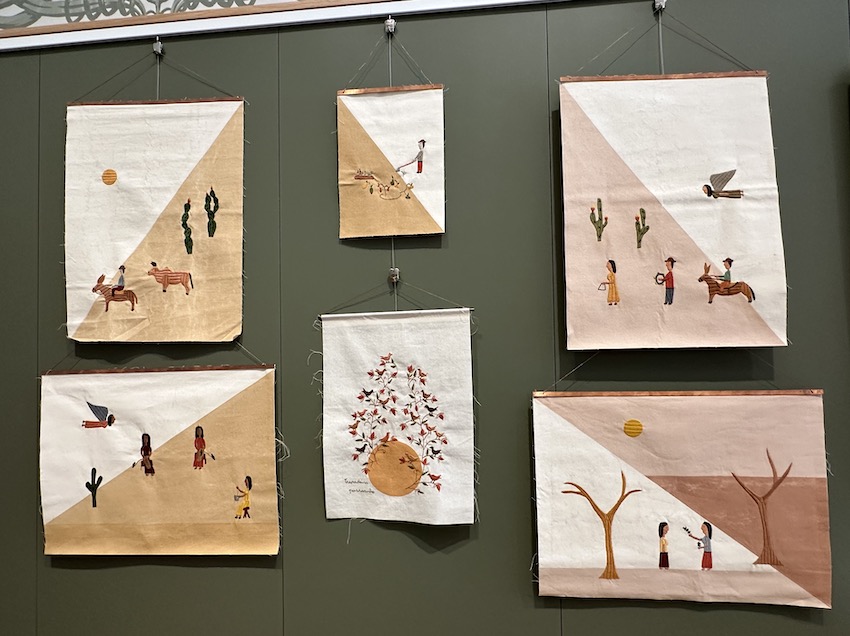
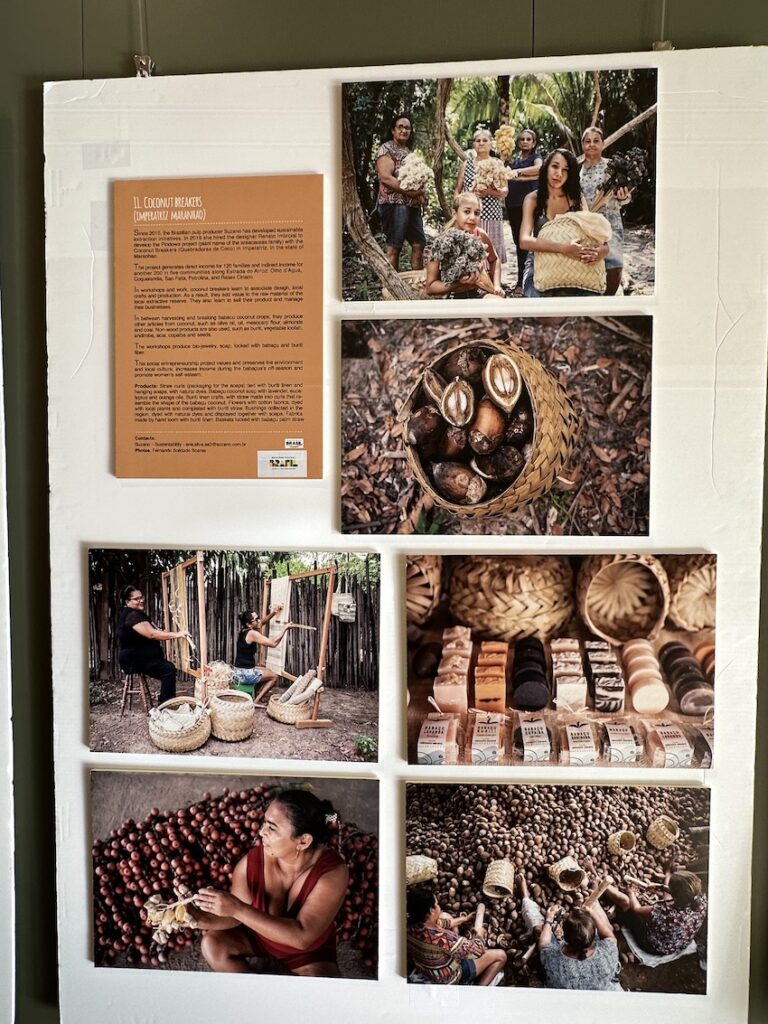
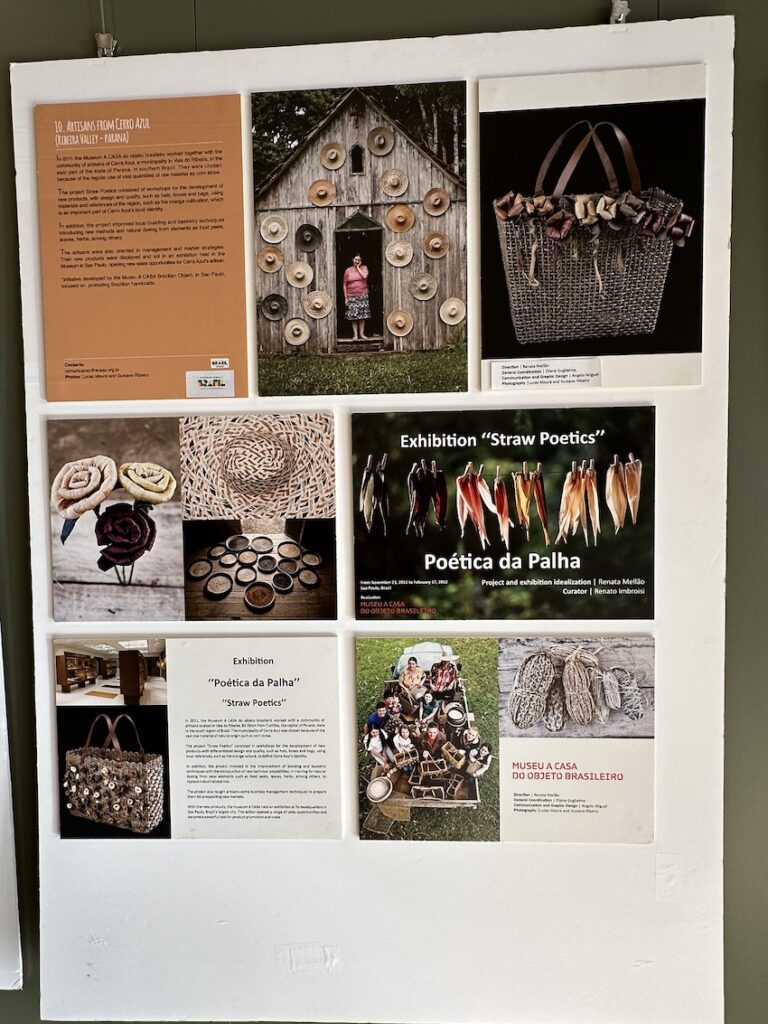
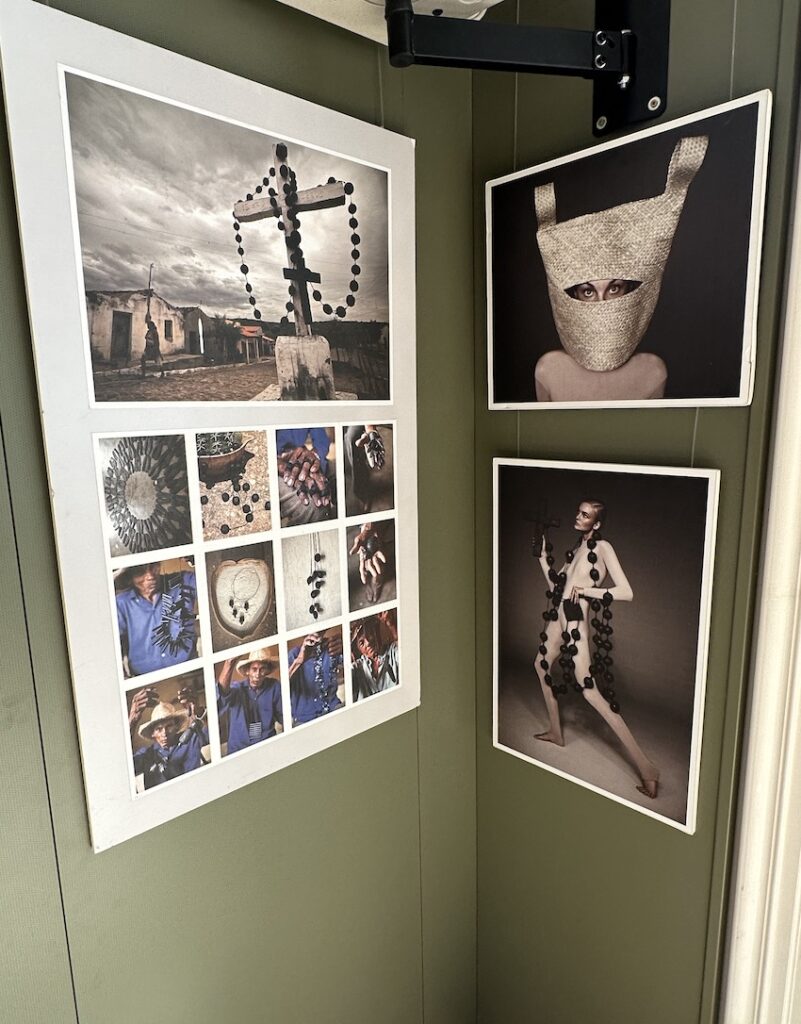
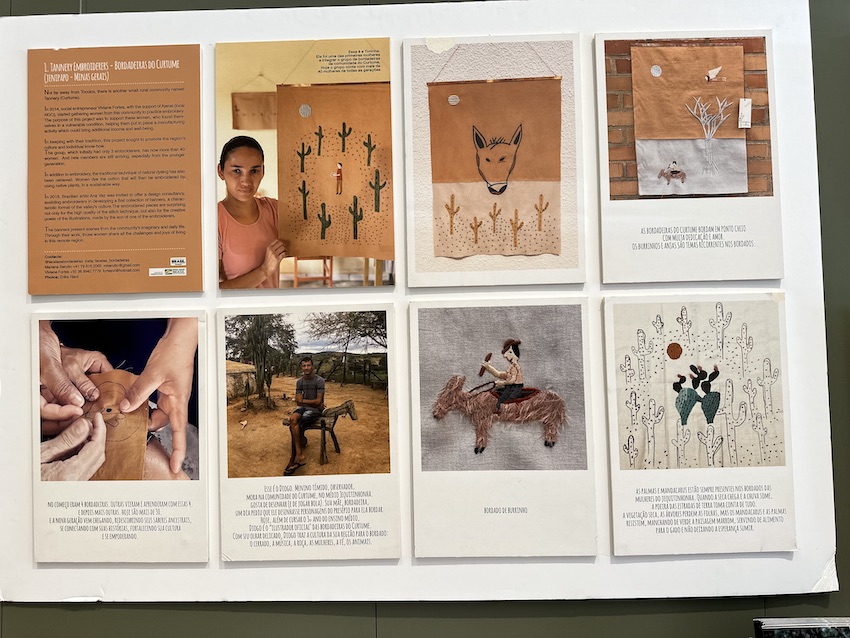
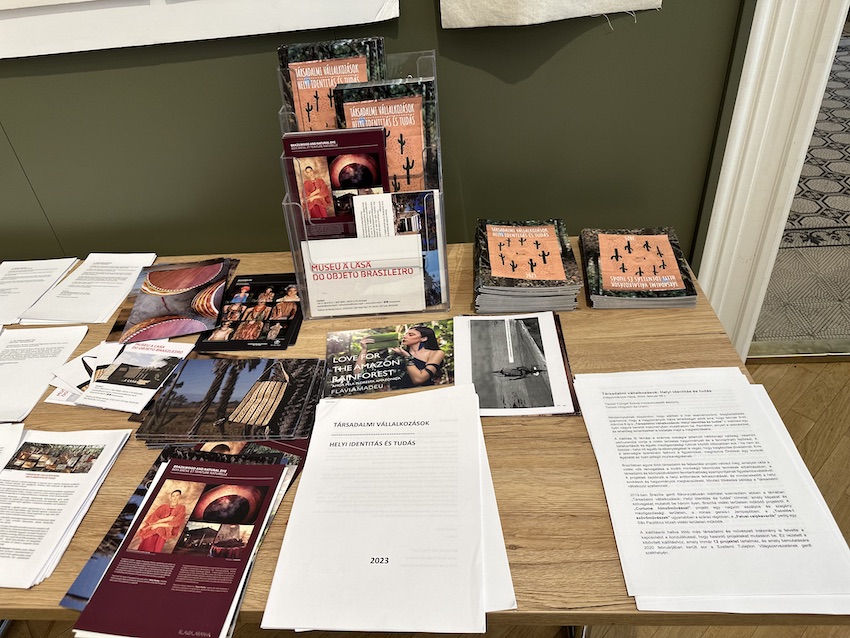
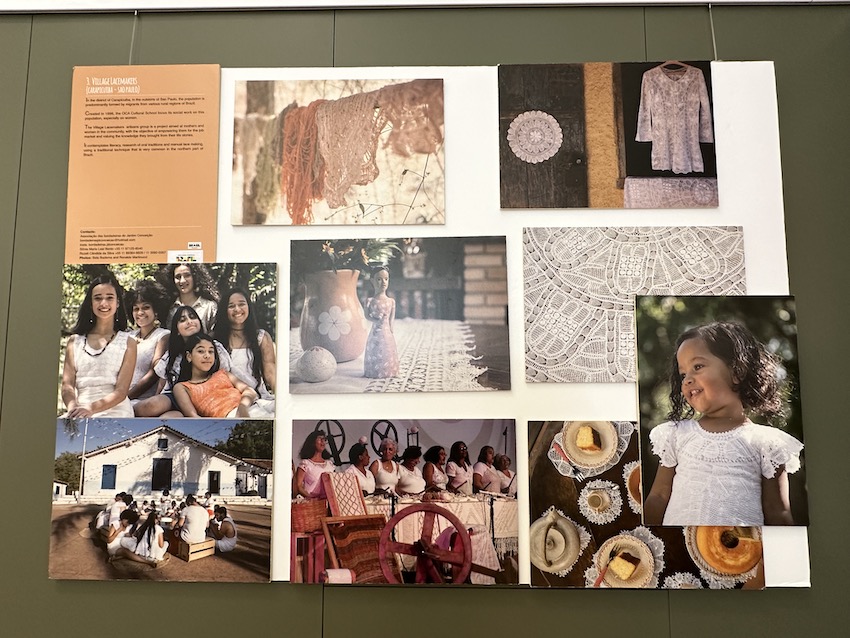
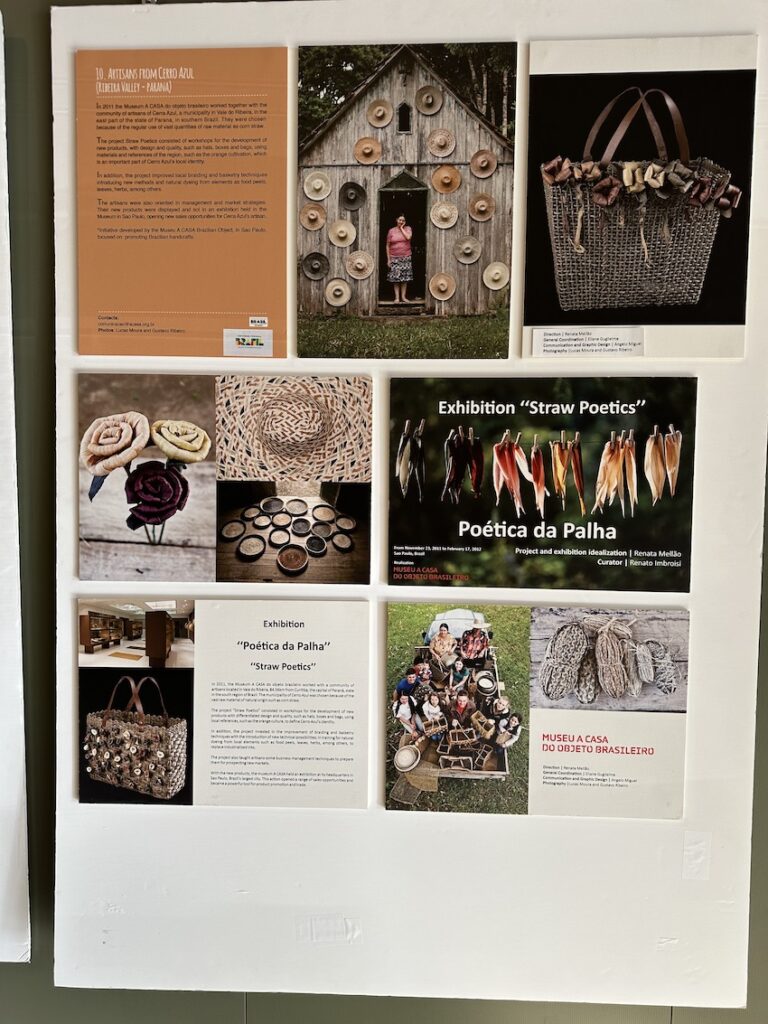
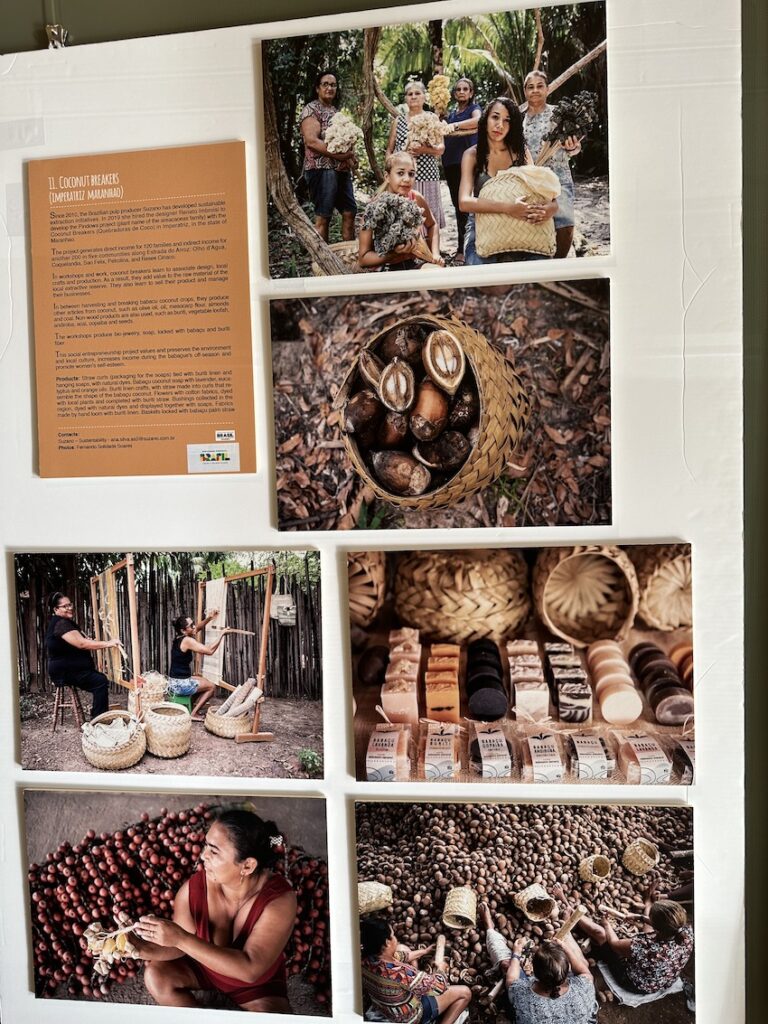
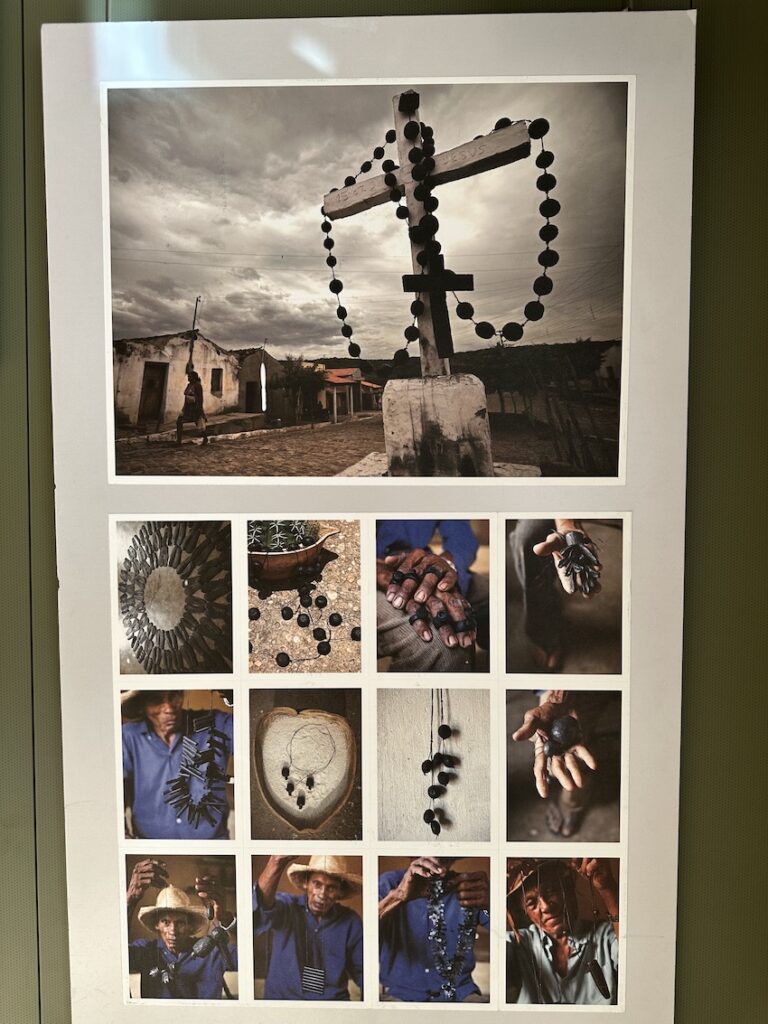
The empowerment of rural women is a challenge common to many countries, particularly developing ones. It requires responses that go far beyond these specific examples brought to your attention. But I believe you will also see merit in these projects that seek to promote the use of local resources, identity and knowledge to generate additional sources of income for rural women.
The exhibition shown in 2020 at the World Intellectual Property Organization was presented in Budapest in 2023 at the Metropolitan Library Ervin Szabó, and in Veszprém, Capital of European Culture in 2023, as well as at the Eötvös Károly Regional Library. I am glad to reiterate my satisfaction and honour to present the exhibition now here. Next September it will be on display at Károlyi Chateau in the village of Fehérvárcsurgó in Hungary.”
The twelve project sections of the exhibition are successful examples of appreciating local culture, income generation, social inclusion and women’s empowerment. Visitors were deeply impressed by the showcased artifacts, particularly the Tocoios woven products, hailed as exquisite masterpieces that beautifully capture a reverence for nature. The distinctive embroidered masks crafted by rural lacemakers, worn by festival performers, each carrying its own narrative, also captivated the attention.
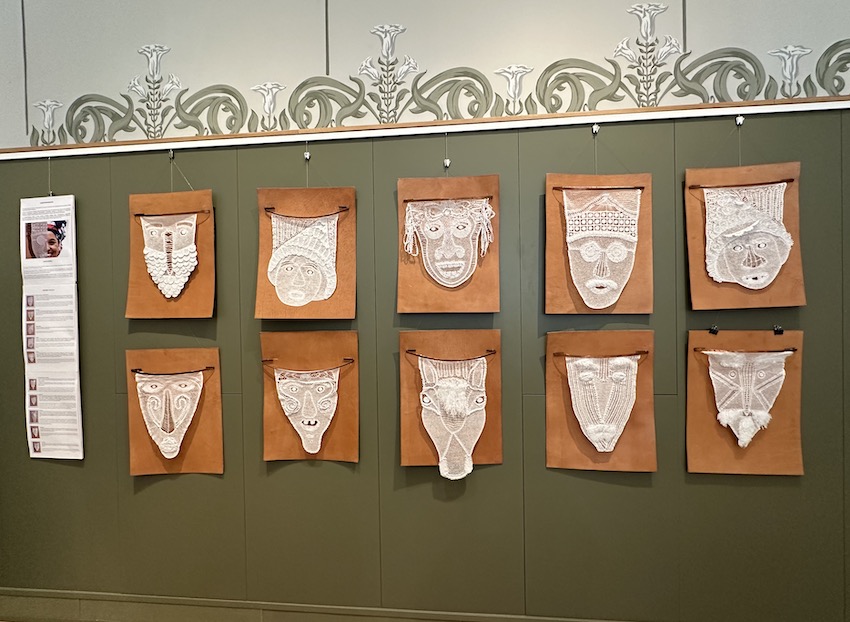
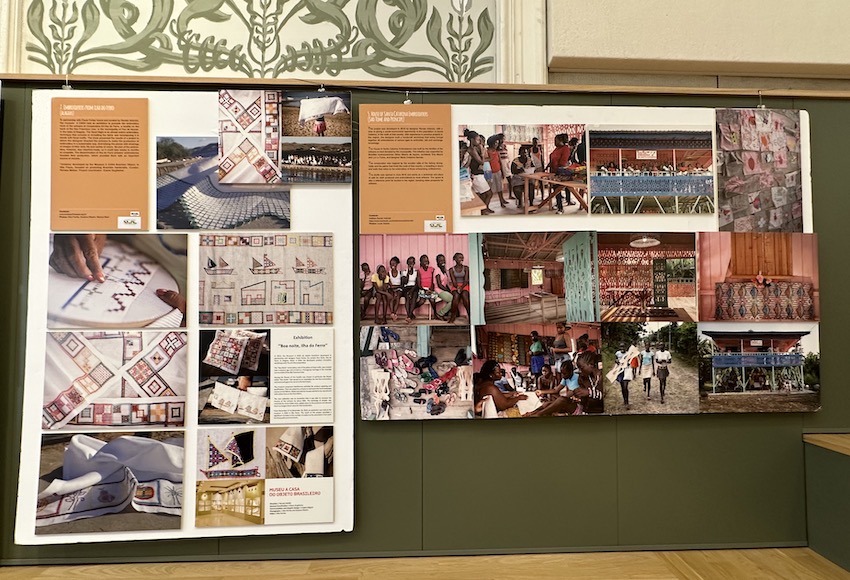

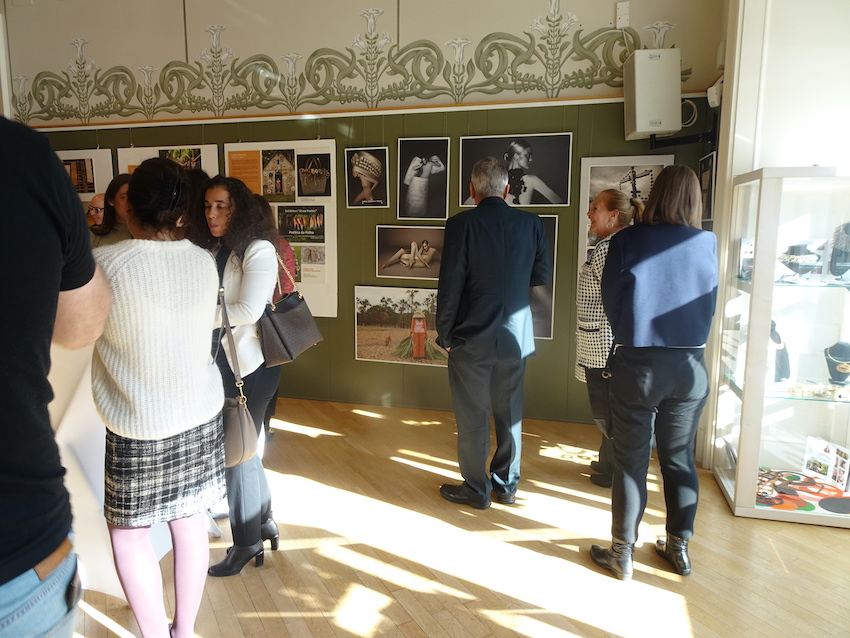
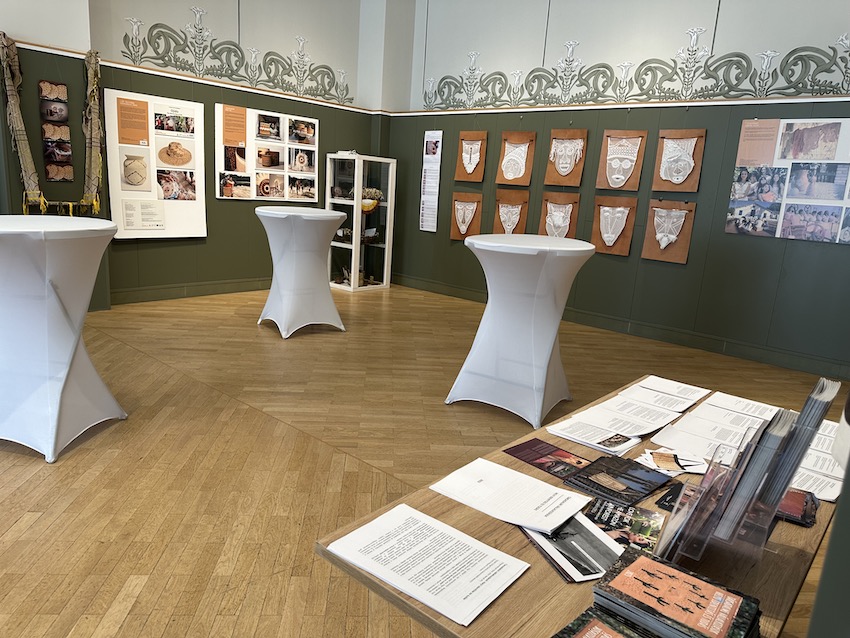
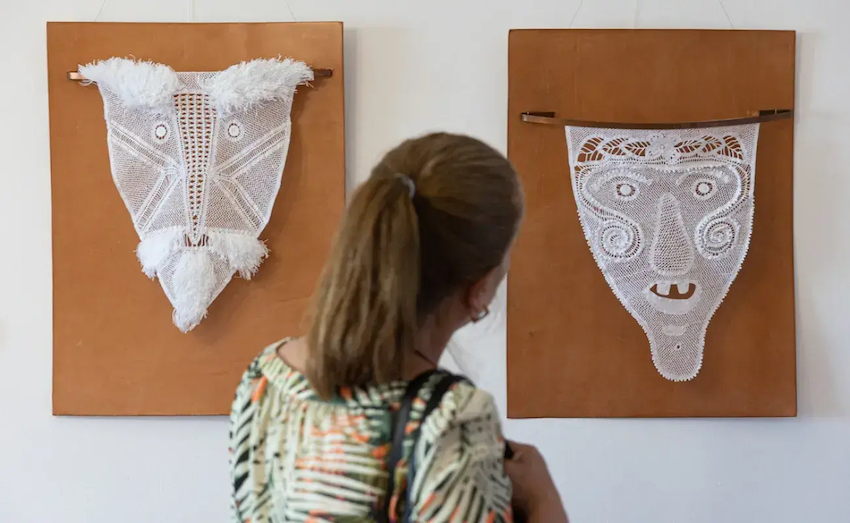
One of the highlights of the exhibition was the incorporation of traditional motifs and materials into contemporary fashion. On display were necklaces, earrings and clothing accessories meticulously crafted from natural elements.
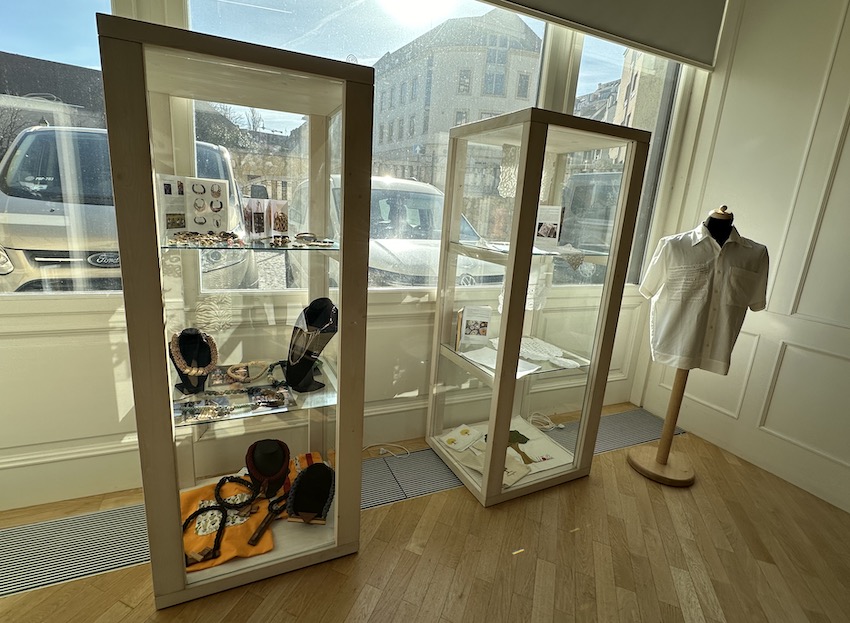
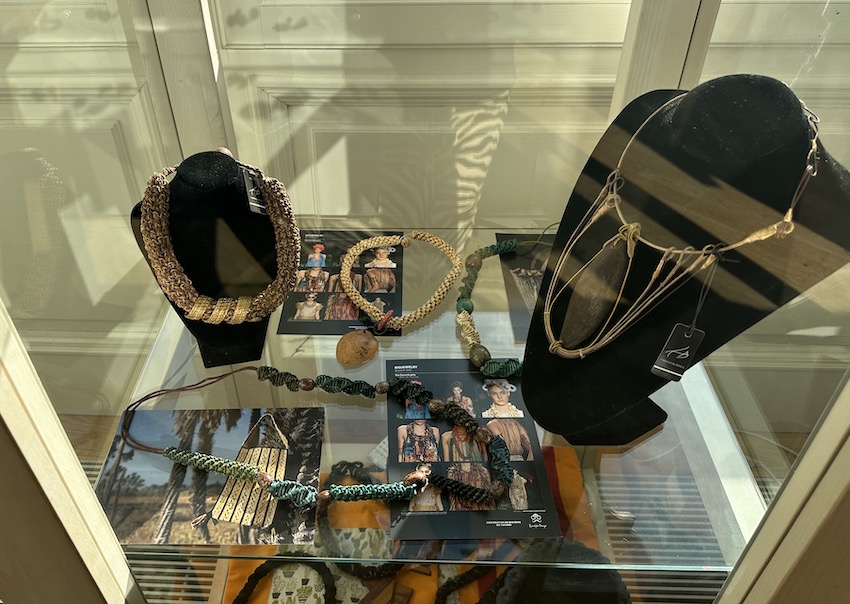
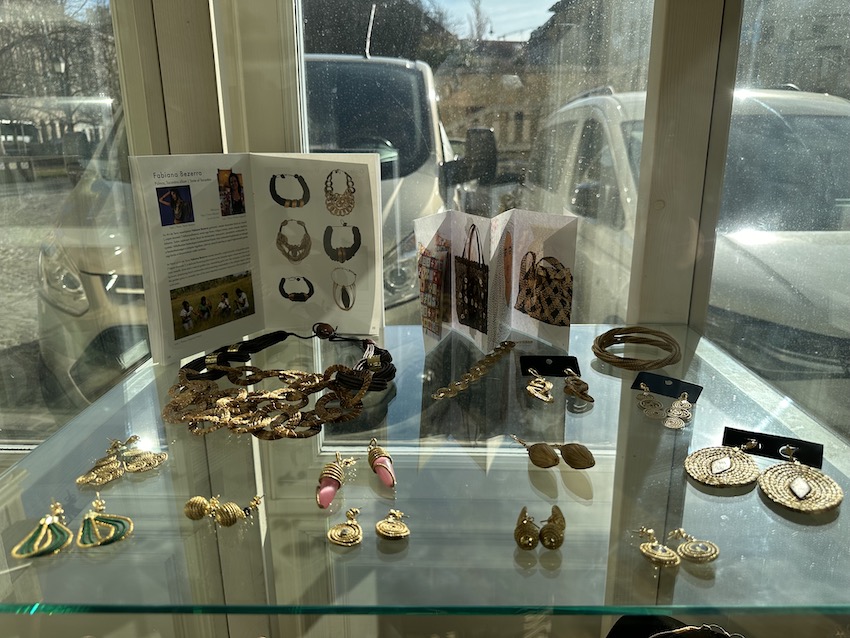
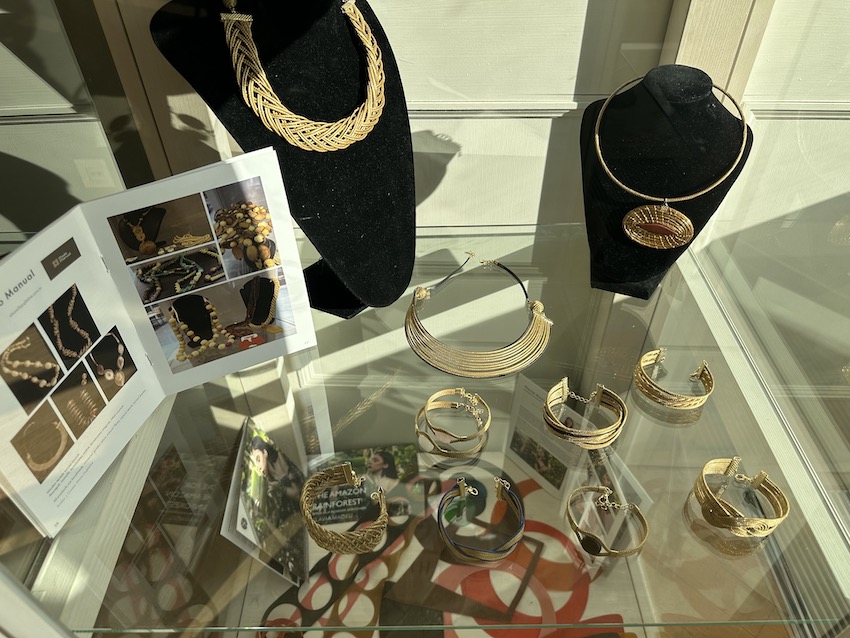
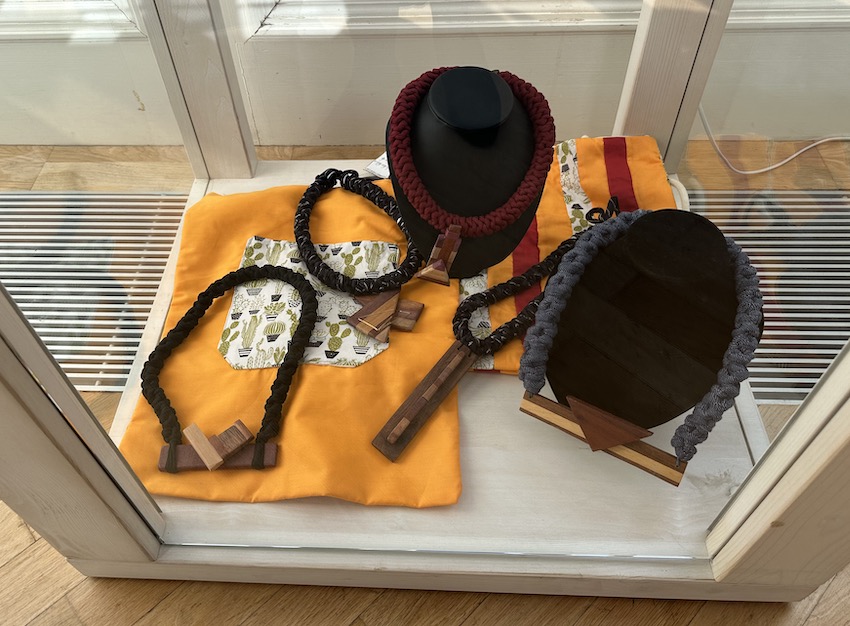
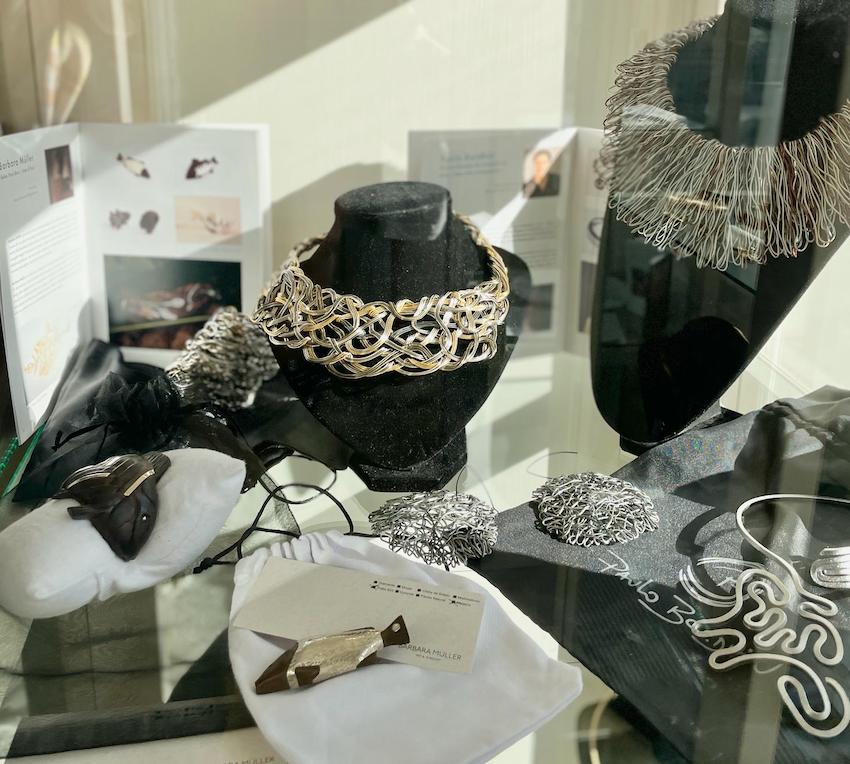
Complementing the exhibits was a diverse photo collection that showed the integration of traditional objects into modern lifestyles.
Female residents serve as artisans of the exhibited objects, providing them with a platform to showcase and sell their products. This not only promotes economic empowerment, but also boosts the self-esteem of the women engaged in this work.
Source: Embassy of Brazil in Budapest
Photos by DPA and the Embassy of Brazil

